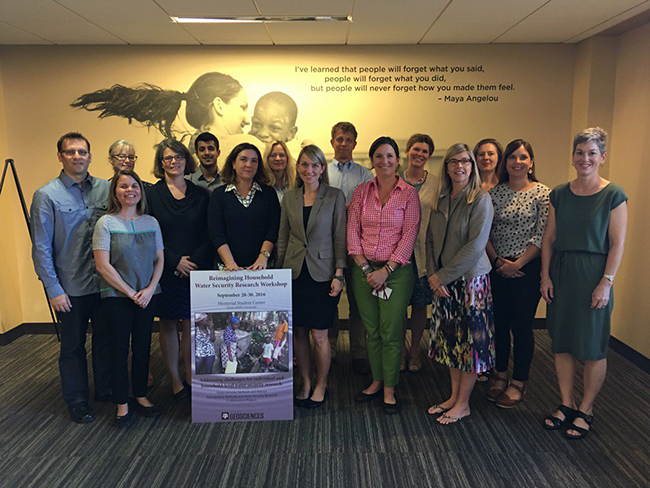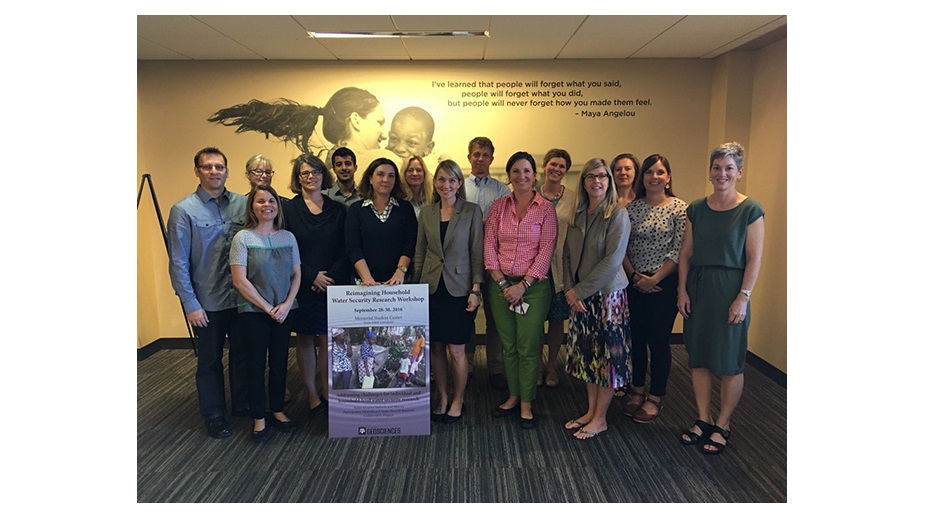Water insecurity is a reality for vulnerable households everywhere from Flint, Michigan, to Sao Paulo, Brazil, and from Cape Town, South Africa, to the Texas-Mexico border colonias, the plots of land outside cities that lack water and other basic infrastructure.
To address this global and complex problem, the National Science Foundation (NSF) recently awarded a $500,000 grant to Texas A&M University and several collaborators for the formation of the Household Water Insecurity (HWISE) Research Coordination Network (RCN). Wendy Jepson, professor in Texas A&M’s Department of Geography, is leading the five-year project with co-investigators Justin Stoler at the University of Miami, Amber Wutich at Arizona State University, and Sera Young at Northwestern University.
“Our team began as geographers and anthropologists, but the HWISE RCN features dozens of multidisciplinary scientists and practitioners from around the world who all seek to mitigate the effects of water insecurity—a truly exciting and inspirational group of professionals,” Stoler said.
 |
| The HWISE RCN Group |
The RCN is designed to create research infrastructure, working groups, and training for engagement and participation. The researchers, who have been collaborating since 2014, will develop and test a water security metric—an analytical framework that could streamline water security measurements globally. They already have held three workshops and developed a proposal, led by Young, on the household water security metric development.
“Water security means adequate, reliable, affordable water for a healthy life,” Jepson said. “Household water insecurity can result when those conditions are not met, and can happen almost anywhere. We will be consolidating our research resources and looking for new ways to study household water insecurity and impacts on health, well-being and livelihoods, and developing a geospatial perspective.”
“Because the RCN is funded by NSF’s Geography and Spatial Sciences Program, we have a mandate to approach water insecurity using the latest geospatial analytical tools and reinfuse the field with a geographic perspective,” Stoler said.
Stoler’s decade-long research of privatized, packaged water in West Africa is an example of how local markets adapt to water insecurity. “It is an unfortunate example of how policy makers often take water insecurity for granted in many urban settings. Just because there are pipes in the ground doesn’t mean they carry water,” he said.
Even in highly developed counties, aging infrastructure, poverty or other systemic problems can produce household water insecurity. “The Flint water crisis was not an anomaly,” Jepson said. “Water insecurity is experienced in many communities.”
Current HWISE collaborators include over 40 scholars from 24 U.S. and international institutions, and span a variety of careers and social science disciplines. Their effort to date is only the beginning of a productive, collaborative research network to advance conceptual and methodological frontiers in water security and environmental social science, Jepson noted.
“The RCN will be developing new approaches for studying these questions and finding the causes and consequences. We have outlined three major workshops, including engagement with various stakeholders in the international water sector. We are also developing tools, webinars, podcasts, and a data platform for our research community,” Jepson adds.
The team also will include practitioners who have doctorates but work outside of academia. The RCN’s steering committee will include diverse professionals from multiple countries as well. The HWISE RCN also will include experts in political science, nutrition, geography, anthropology, and other fields, equipping them to study these complex water security problems.
“The RCN is an opportunity to raise the bar of collaboration, build human capital, accelerate science and theory, and ultimately alleviate one of the biggest constraints to human development,” Stoler said. “Along the way, we look forward to mentoring the next wave of water insecurity scholars and building a community of practice.”
By Leslie Lee, Texas A&M University College of Geosciences
Contributions by Deserae del Campo, University of Miami College of Arts & Sciences
August 17, 2018

